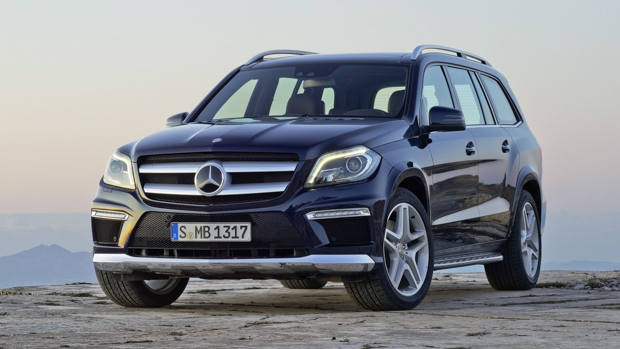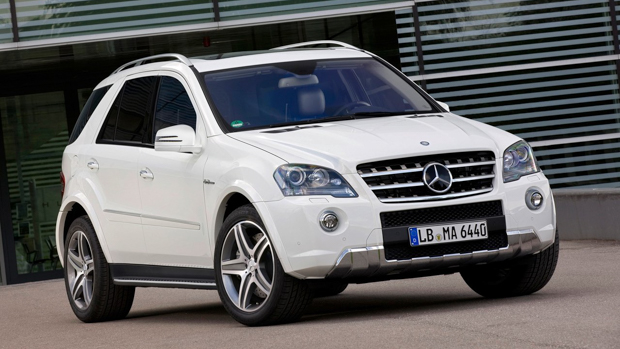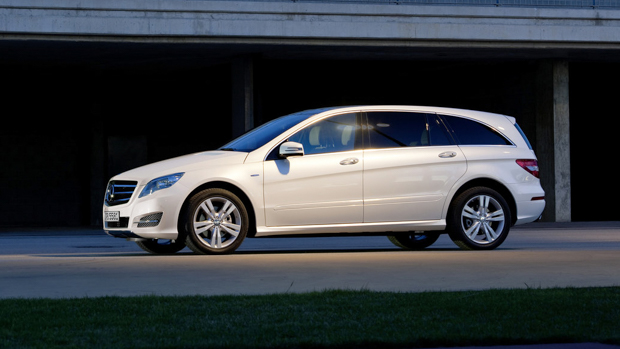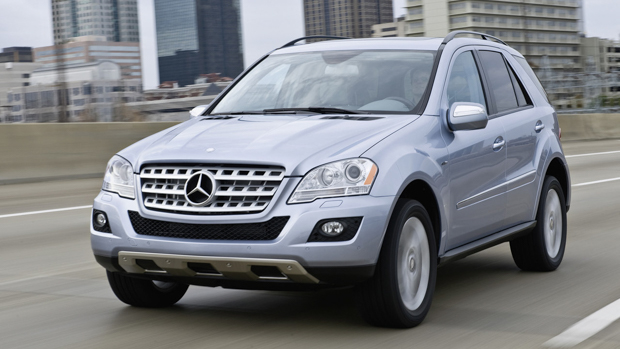-
Car Reviews
- All reviews
- Midsize SUVs
- Small cars
- Utes
- Small SUVs
- Large SUVs
- Large cars
- Sports SUVs
- Sports cars
- Vans
Latest reviews
- Car News
-
Car Comparisons
Latest comparisons
- Chasing Deals
Drivers of affected Mercedes-Benz models have been asked to stop using their car until the vehicle has been inspected under the recall
An urgent recall has been announced in Australia regarding a potentially serious brake system fault affecting some Mercedes-Benz models
The recall takes in 17,687 Australian-delivered units of the Mercedes-Benz ML-Class and GL-Class large SUVs and the R-Class minivan, between model years 2005 to 2013, though private imports of the R-Class have extended that range out to 2016.
Mercedes-Benz is urging owners of affected cars via written correspondence not to drive their vehicle until it has been inspected by an authorised service centre.
In the worst hypothetical case, if a driver of an affected car with especially advanced corrosion of the brake booster assembly braked very hard, the resulting pressure could cause a breakage resulting in the braking system completely failing, with no braking force available through the brake pedal.
Chasing Cars understands that no crash has occurred globally due to this phenomenon. Mercedes-Benz AG, the German parent of Mercedes-Benz Australia, wrote in correspondence related to the same recall in that the United States that it is not aware of any crash, injury or death resulting from the fault.
However, the problem worsens with time for affected cars due to a design fault that allows water to pool around the brake booster.
Mercedes-Benz Australia are therefore holding that it is critical that affected owners have their vehicle inspected for the fault before driving the car again.
The recall specifically affects the ML 280, 300, 320, 350, 500, 63 grades (between model years 2005 and 2011); the GL 320, 350, 420, 450, 500 (2006-2012); R 280, 300, 320, 350, 500 and 63 (2005 and 2016).
The affected vehicles have a design flaw in common that can cause water buildup in the vicinity of the join between the brake booster and broader braking system.
If water is allowed to pool in this area for a long time, it causes surface rust which can slowly deteriorate the assembly and cause a failure of the brake system.
The design flaw stems from the use of a rubber covering to cover the unsightly ‘crimp’ join between the parts of the brake system, visible under the bonnet of the vehicle.
Poor lamination of the aesthetic rubber covering can allow water to seep underneath the cover and onto the brake assembly.
The recall will see owners of the affected vehicles have their car inspected by an authorised Mercedes-Benz service centre at no cost to the owner.
The visual inspection is brief, and is accompanied by a diagnostic test by the technician that applies maximum pressure to the brake system to detect a fault.
If the vehicle is given the all-clear, it will be declared safe to drive — however, Chasing Cars understands that Mercedes-Benz will issue a subsequent recall in about two years from now, in 2024, to replace the brake booster on all affected cars.
Mercedes-Benz does not expect the recall to result in owners being refused registration renewal if the car is not cleared by a technician.
In some Australian states and territories, cars that have not been treated under the well-known Takata airbag recall are not allowed to have their registration renewed.
The Takata recall related to defective inflation mechanisms in car airbags which, in very rare instances, could fire detonation shrapnel at the head of the vehicle occupants instead of properly inflating the airbag in a crash.
A defective Takata airbag in a Honda CR-V caused a fatality in Australia in 2017 after the vehicle in question was not attended to despite a recall notice being issued by the manufacturer.
That fatality led to an escalating campaign for quicker action on the airbag replacement program.
Owners who believe they may be impacted by the Mercedes-Benz brake booster recall can check their car’s VIN number for its inclusion in the recall on the company’s Australian website.
Latest news
About Chasing cars
Chasing Cars reviews are 100% independent.
Because we are powered by Budget Direct Insurance, we don’t receive advertising or sales revenue from car manufacturers.
We’re truly independent – giving you Australia’s best car reviews.



